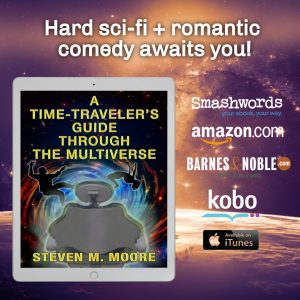Soap operas…
Until I went to Colombia to live for a while (a majority of my life in academia, in fact), I thought soap operas were an American institution (they’re called telenovelas there and elsewhere in Latin America). I’m not a fan. I can’t imagine being a writer for one either. That would be my vision of hell. Most of them are a never-ending story, and their plots are stereotypical, trite, and plodding.
Truth be told, I haven’s watched many of them. In Colombia, they even occurred in the evenings, maybe like Dallas or Knot’s Landing—yeah, I know some names, and about Larrry Hagman’s dream, which seemed to have everyone talking—but you could say that most of our sitcoms are really soap operas too. I run into General Hospital (I think that’s what it’s called) before I hop over from ABC to CNN’s Jake Tapper, but that’s only because the remote’s still on ABC after watching the first half hour of GMA (there’s nothing more interesting on GMA after that—they’ve even got poor George doing pop bits).
I don’t write this to blather on about something I know little about, TV soap operas, so why are they in this blog post? Because I hate soap operas that pretend to be books! What follows is from the perspective of an avid reader, but it affects my writing as well.
Other authors’ sins in writing books that are soap operas come in two forms, both occurring more with the ebook revolution: serialization of a novel and book series. You’ll see the first just by looking at the equivalent number of pages. Some authors think it’s a clever way to maximize their royalties by parceling out a few chapters of a novel at a time. Even Hugh Howey did this with Wool. I didn’t buy his soap-opera episodes until he put it all together in the final novel. Unfortunately, you can still see the seams, which almost ruined the novel for me—it still looks like soap opera scripts stitched together.
One obvious way to detect the second is to use the “Peek Inside” feature on that same book page that has the page count, and go to the end of the ebook. If you see something like “See how Pauline reacts to this new peril in the next book in this series,” don’t buy the book even if it has a novel’s page count—it’s really just one episode from a soap opera. It’s okay for an author to add the first few chapters of the next book at the end. It’s not okay to leave Pauline hanging on a cliff. (Um, maybe that’s why it’s called a “cliffhanger”?) Each book in a series, except for some of the same characters, should stand alone. The author can provide little tidbits from previous books to reward fans, but the story should be a complete one.
How does this affect my writing? Simple: I avoid both sins mentioned above. I avoid serialization completely. Once I serialized a novel, but as blog posts—Evil Agenda eventually became #2 in the “Clones & Mutants Trilogy”—but I rewrote the whole novel instead of just stitching things together; I defy you to detect the seams. (And the serialization is in the dead archives on my laptop, not my blog.) I’ve never repeated that experiment. It was a painful experience and hurt like the Dickens. (Pun for avid readers?)
I was surprised when a reviewer failed to write a review of Son of Thunder only because he hadn’t realized it was #2 in the “Esther Brookstone Art Detective Series.” I suppose I could have told him that #1 and #2 are very different books; what’s more, they can be read independently. (The same will happen for #3 and subsequent books.) That’s easy enough to achieve in a mystery series: each book only considers one or two of the detectives’ cases (the “hook” is often about the detectives finishing up a case, but not the one from the previous novel). Thriller and sci-fi series are a bit more difficult, but quite doable. Or perhaps that reviewer didn’t like those little tidbits related to previous books that I leave for fans following the series? Or he might not be a fan of series, period. (I once had a reviewer say I should give a course on how to write a book in a series, so some reviewers are a bit more open-minded, but it’s all subjective.)
During the COVID-19 pandemic, I’ve binged on some series. None of them were soap operas. Good authors know how to reward fans with tidbits while still satisfying readers who jump into a series in the middle for a theme that attracts them, or who simply want to avoid committing to an entire series. It’s not that hard to write books in a series that are independent. Or maybe it is, and authors should worry about it more?
***
Comments are always welcome!

A Time-Traveler’s Guide through the Multiverse. In my other life in academia, I had the pleasure of meeting Hartle, Feynman, Mandelbrot, Salam, Wheeler, Dirac, Lederman, Feynman, Mandelbrot, and Enrico Fermi’s last student—some in courses, others in scientific meetings, and all characters, but none like physicist Gail Hoff. Enrico Fermi wasn’t the last physicist who was both an experimental and theoretical genius, but Professor Hoff will never receive the Nobel Prize. She goes time-traveling through several universes of the multiverse on a wacky road trip far beyond any in A Hitchhiker’s Guide to the Galaxy or The Time-Traveler’s Wife, never to return to her little lab in a small college outside Philly. Jeff Langley, her jack-of-all-trades electronics wizard, accompanies her. Their escapades, both amorous and adventurous, make this sci-fi rom-com a far-out sightseeing journey filled with dystopian and post-apocalyptic settings, first encounter, robots and androids—all that and more await the reader who rides along. Available wherever quality ebooks are sold.
Around the world and to the stars! In libris libertas!
